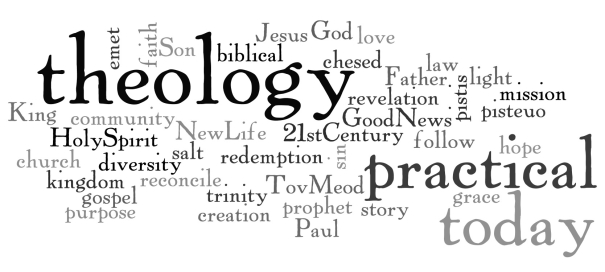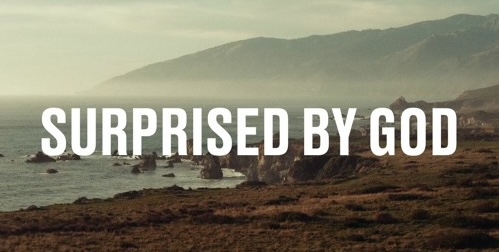…and put up a parking lot (Joni Mitchell, Big Yellow Taxi, 1970).
My wife Barb and I recently returned from two weeks of travel in Greece, following the footsteps of the Apostle Paul led by David Sparks of Footsteps Ministries. Starting in Thessaloniki we made excursions to Veria (Berea) visiting the traditional rostrum in a synagogue, likely in the same location where Paul delivered his message about the resurrected Jesus a couple thousand years ago! We also saw the remnants of the old Jewish Quarter recently being rebuilt/renovated. Sadly no Jewish people have lived in Berea since all were deported to Auschwitz during World War II.
While in Northern Greece, we also visited ancient Philippi and the stream where Lydia and the first Philippian converts were baptized. At the ancient ruins, we walked on the same road Paul and Silas would have walked on, and stood in the forum where they were stripped and beaten before being thrown in jail. And we peered into the likely location of their jail cell.
Our journey took us to Athens and Mars Hill (Areopagus) where Paul, at the base of the Acropolis, defended his belief in one true God in marked contrast to Greek mythology and polytheism. We visited ancient Corinth, standing in the forum where Paul was brought before Gallio, the Roman proconsul, by Jews not wanting to hear about a dead and resurrected messiah. Leaving Athens by cruise ship, we visited ancient Ephesus in Turkey as well as some islands of the Aegean Sea (Rhodes, Mykonos, and Crete).
As you can imagine, we were deep in Greek Orthodox territory. While traveling from city to city we saw Greek churches scattered throughout. We visited several eastern churches including the 1400-year-old church of St. Demetrius, dedicated to the Roman military officer who was martyred for his faith in Christ by Emperor Galerius. Some churches were converted mosques following the fall of the Ottoman Empire. Although the exteriors of the churches varied significantly, their interior had many things in common.
Five years ago I briefly visited a Greek Orthodox Church in Korçë, Albania. It was newer as it was built after Albania gained religious freedom following the fall of the Soviet Union in 1990. In ignorance, I deemed the Church to be filled with what seemed like meaningless, ritualistic icons. I discovered otherwise during this trip. Some icons, yes but more importantly were the detailed paintings and frescos.
But they weren’t just paintings. They told the Gospel story. Illiterate people over the centuries could sit in worship services and observe the gospel narrative in moving and living colors! We could spend hours discussing the detailed purposeful art. But I want to move on to something I observed about Greek Orthodoxy that wasn’t part of our teaching tour.

The photo above is of the Cathedral of St. Titus (Also known as Agios Titos) in the city of Heraklion, Crete. Titus is not mentioned in the Acts of the Apostles, but it is understood that he was the first overseer of the Christian community that Paul helped found on the island of Crete. The original Church on this site was built in the mid-14th century. It was converted into a mosque when Heraklion (then Candia) fell to the Ottoman Turks in 1669.
Destroyed completely by an earthquake in 1856, the building in the photo was a replacement mosque built in 1869. When Greece gained its independence from the Ottoman Empire in 1925, the mosque was converted to the present church.
Like so many of the Greek Orthodox churches the cathedral, as you can see, is located in the center of the city with a plaza in front and a school playground adjacent on the left. We could hear the children playing outside during our teaching time in the church. To the right is a coffee shop. On the plaza were banks and stores of commerce. What was missing? A parking lot!
We were in and around the Church for a couple hours mid-morning on a weekday. There was a constant coming and going of people. Ladies, with groceries in hand, would come into the Church, say a prayer, light a candle and be about their day. Others appeared to stop in on their way to work. One young couple came in for a blessing from the clergy. In general, the Church seemed like the center of activity for people as they went about their days. This was my takeaway:
The Church was a part of the fabric of the community.
And that’s a big deal. Being part of the fabric of a community is proximate to the life of Jesus. He wasn’t just a rabbi. He was a rabbi that became part of the fabric of his community – Capernaum. It’s where a majority of his early followers resided.
Proximate. As I typed the word it occurred to me that I don’t think I have ever used or typed proximate in a sentence. On the fear that I might be misusing the word I, as I am wont to do, looked it up…
Proximate : closest in relationship; immediate, very or relatively close or near. Etymologically, proximate derives from Latin proximatus ‘drawn near.’ Drawn near! What immediately comes to mind is Jesus’ proclamation of the gospel, the good news of God: “The time has come. The kingdom of God has come near” (Mark 1:15).
Proximate, proximity – it’s how we become part of the fabric of our communities. In urban cultures, it seems that proximity and fabric can be naturally woven together. I suspect it’s more difficult for western suburban churches where we build facilities and put up parking lots.









